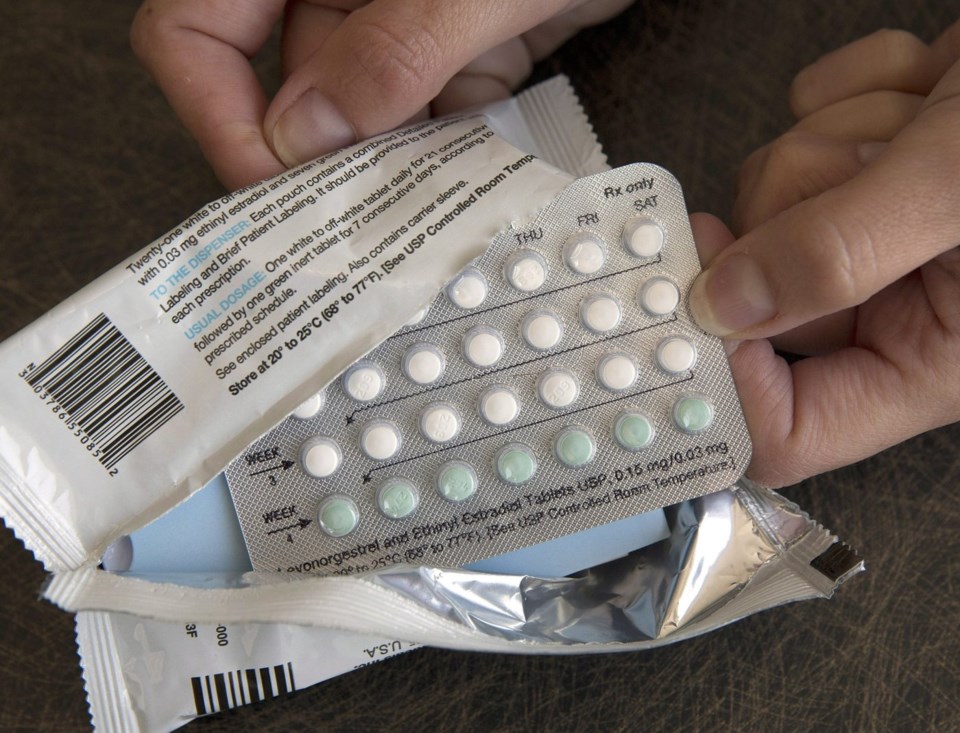HALIFAX — Nova Scotia physicians and other sexual health experts who are calling on the provincial government to fund birth control and increase access to an HIV-prevention medication say the move would improve the lives of many while saving the province money in the long term.
Four doctors, the head of the Halifax Sexual Health Centre, and a pharmacy professor made the comments Tuesday to members of the legislature's health committee meeting in Halifax.
Dr. Melissa Brooks, the medical co-director of the Reproductive Options and Services Clinic, said the province's existing family pharmacare plan is so restrictive that it often doesn't help those who cannot afford their preferred birth control option.
"This is a huge problem. As an abortion provider, a lot of people I see needing abortions for unplanned pregnancies couldn't afford birth control," Brooks told reporters after the meeting.
Brooks told members of the committee she spoke in favour of publicly funded birth control back at a committee meeting in 2022, when "I got to encourage Nova Scotia to be leaders, because we would have been leaders then in universal contraceptives."
"We're no longer leaders, but let's not be laggards, right? Other provinces are doing this -- let's not drag our feet," she said.
"But it sounds like we could be leaders in the PrEP field," she added, encouraging the government to move to cover the antiviral drug.
Abbey Ferguson with the Halifax Sexual Health Centre said PrEP — an antiviral medication that can prevent HIV transmission — is so expensive that many people who come to the clinic hoping to access the drug cannot afford it.
The drug costs between $200 and $250 per month, Kyle Wilby, a professor and director of Dalhousie University's pharmacy college, told the committee. He said the province should consider that this is far less than the cost of treating HIV — which can be well above $1,500 to $2,000 each month.
Wilby told the committee that as a pharmacist and PrEP user he was shocked by how hard it was to access when he moved to Nova Scotia in 2021. He said he moved from New Zealand, where he was able to get the antiviral with a $5 co-pay fee.
The pharmacist said Nova Scotia is also lagging behind other provinces when it comes to PrEp access, noting that patients in British Columbia, Alberta, Saskatchewan, Manitoba and P.E.I. can get the medication at no cost while Nova Scotia's drug plan comes with large deductibles and co-payments before receiving any funding, Wilby said — "which makes the benefit largely futile."
"It is important to note that HIV PrEP users are not a major population. So when you're thinking of doing widespread funding or changing the funding model, the cost associated of that will not be that significant... It's gay, bisexual men who have sex with men, transgender women, a population who really does not have a major voice in health care and also suffers from other aspects of health inequalities and other inequities," he said.
Nova Scotia's chief medical officer of health Dr. Robert Strang said the incidence of new cases of HIV has increased from 2021 to 2024, which is the latest available data. In 2021, there were 1.5 new cases of HIV per 100,000 people, and in 2024 that rate rose to three cases per 100,000 people.
After the meeting, Strang said the province should consider further investment in access to PrEP and contraceptives.
Kari Ellen Graham, a longtime community pharmacist who spoke on behalf of Access Now Nova Scotia, said she's concerned about the government's lack of action on universal contraceptives as she and pharmacy colleagues see a rise in unintended pregnancies because of the cost of birth control.
"We see, day in and day out at pharmacies all across the province, people show up with (birth control) prescriptions, and we say that'll be say $50 and so they walk out with nothing," she said.
Graham and others used the meeting to call on the provincial government to urgently sign on to the federal government's pharmacare program, which helps fund many birth control options. So far P.E.I., Manitoba, British Columbia and the Yukon have signed up to the program.
"It's very important that Nova Scotia gets on the bandwagon now. We are lagging behind... Now is our chance," she said, adding that she and many others had been advocating for the provincial government to fund birth control for years.
And now, with the federal agreement, "we have this money on the table right now, we don't know how long it's going to be on the table. It would be to our best advantage to use that federal money right now," she said.
Brooks said while the federal agreement doesn't cover PrEP, it should be included as the province moves toward signing a bilateral deal.
This report by The Canadian Press was first published June 10, 2025.
Lyndsay Armstrong, The Canadian Press



